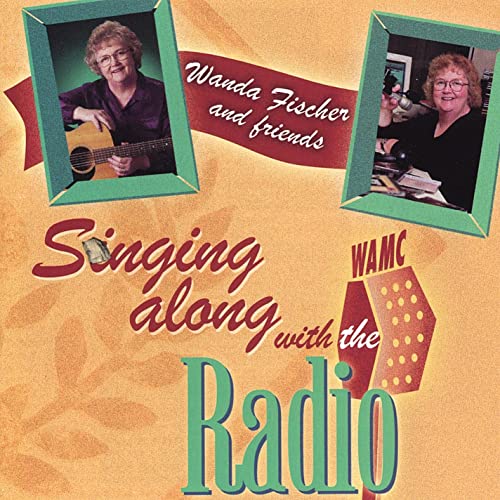Today is Martin Luther King, Jr.’s actual birthday. Public Broadcasting ran a documentary covering the music of the Civil Rights Movement, so two of my great musical buddies and I got together, ordered a pizza, and watched the show.
What memories it brought back to all of us! We saw people we’ve met in person, like the late Pete Seeger and the late Ruby Dee (we all know Ruby’s and Ossie Davis’s son, Guy, well). We saw legends of the Civil Rights Movement and listened how singing gave them courage when they were arrested for peacefully demonstrating for the right to vote. One such as:
We shall not, we shall not be moved
We shall not, we shall not be moved
Just like a tree planted by the water
We shall not be moved.
They sang these while jammed into jail cells, much to the chagrin of White supremacist jailers who stood in their way of voting, hammered them with fire hoses, sicced police dogs on them, beat them with billy clubs, handcuffed them, and threw them in jail in the first place.
Pete Seeger explained how the song “We Shall Overcome” came to be, in the late 1940s, when he, Guy Carawan and two others began singing the song. During the Civil Rights Movement, people sang it together by linking their left hands with the right hand of the person next to them, forming a human chain and rocking back and forth.
The film also showed the influence of gospel music on Civil Rights songs, as well as how pop singers such as Sam Cooke and Marvin Gaye decided to fold political songs into their repertoire. Sam Cooke’s “A Change is Gonna Come” has now been recorded by many artists and continues to be relevant to this day. Marvin Gaye’s “What’s Goin’ On” has also made its way onto many recordings by other artists.
The movie stressed the influence of gospel music throughout the turbulent days of the Civil Rights Movement, and I believe we need more of this kind of music in these days of division within our country. For anyone who wasn’t alive during the 1960s, both prior to the signing of the 1965 Civil Rights legislation and during the days when the country was attempting to implement the law, let me tell you, those times were turbulent and trying on many levels. And it wasn’t just the south; indeed, in my home town of Boston, racism was rampant, especially with segregation in the schools. In my hometown school, just south of Boston, we had no African-American students, nor did we have any Jewish students, to my knowledge.
Following that documentary, my two friends and I, who have visited Elvis Presley’s home, Graceland, in Memphis, watched the most recent movie about Elvis. Starring Austin Butler as Elvis and Tom Hanks as the notorious Colonel Tom Parker, the movie also emphasized the role of gospel music in developing Elvis’s music career. He loved gospel music and Black roots music because he and his mother lived in a Black neighborhood when he was growing up. Listening to the rhythms he incorporated into his music demonstrates where many of his ideas originated.
The influence of gospel music in the Civil Rights Movement, as well as the career of the music of the popular music star who’s sold more records than any other in the history of the United States music industry, is obvious to me from this afternoon’s journey. Dr. King might asked people to sing here, so insert your favorite gospel tune here. His was “Precious Lord.”
Take my hand, Precious Lord, lead me home…”
If you visit the Civil Rights Museum in Memphis, you will hear a recording of Mahalia Jackson singing this song. It’s what MLK, Jr. wanted her to sing at his funeral. And she did.
Wanda Fischer
Schenectady, NY
January 15, 2023



What a beautiful post, Wanda! I love reading about the influence of Gospel music in history. If we ever get to Memphis, I want to visit the Civil Rights Museum and listen to the song Mahalia Jackson sang at MLK’s funeral. Thank you for this!
Blessings,
Patty
Hi Patty–If you visit the Museum, bring Kleenex. I cried so much when I was there, all five times. I always find something new that I missed the time before.
Wanda, your posts are always so fascinating and full of information. I listened to the Sam Cooke recording – it was chill-inducing. I have often wondered why we haven’t had a resurgence of gospel-influenced folk music in these days of racial unrest, but I imagine that Rap and Hip Hop are the latest iterations of that. Rap can he an expression of pain and unrest with the status quo as well.
Thank you for sharing your thoughts and memories on gospel music and Martin Luther King Jr.
Hi, Wanda,
First, the song, A Change Is Gonna Come, by Sam Cooke was, if I am correct, the last song that he recorded. Sam Cooke cared about black people and many times he had to be admonished because he didn’t want to sing at all white venues where blacks were not allowed.
Elvis had a deep heart for black gospel music and also black spirituals. He also preferred to have background vocals done by black singers.
As for Martin Luther King, I am so thankful that I had the chance to see and hear him while he walked this earth. That is an occasion that I will never forget, because it helped change my life.
I enjoyed your article and especially the song by Sam.
Oh, one of my favourite gospel songs is, IF I CAN HELP SOMEBODY, THEN MY LIVING WILL NOT BE IN VAIN. Mahalia sang this song also.
Shalom aleichem